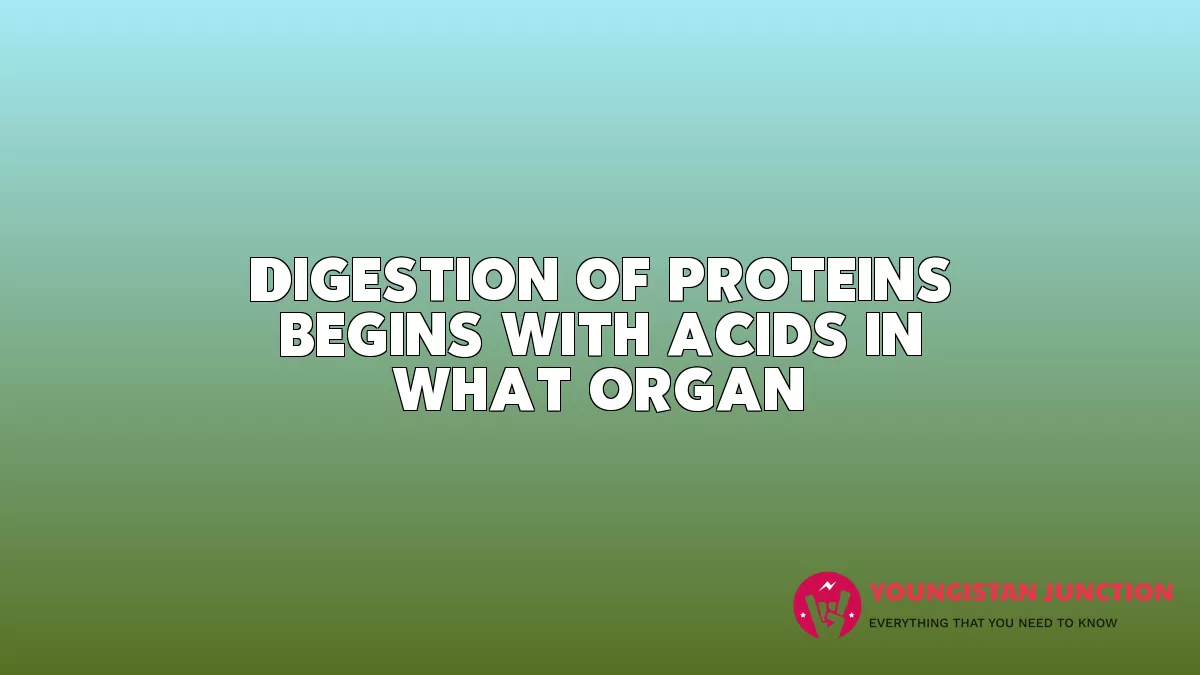Digestion of proteins begins with acids in what organ?
- Correct Answer: brain
- colon
- liver
- stomach
Explanation: 24.4 Protein Metabolism Digestion of proteins begins in the stomach, where HCl and pepsin begin the process of breaking down proteins into their constituent amino acids. As the chyme enters the small intestine, it mixes with bicarbonate and digestive enzymes. The bicarbonate neutralizes the acidic HCl, and the digestive enzymes break down the proteins into smaller peptides and amino acids. Digestive hormones secretin and CCK are released from the small intestine to aid in digestive processes, and digestive proenzymes are released from the pancreas (trypsinogen and chymotrypsinogen). Enterokinase, an enzyme located in the wall of the small intestine, activates trypsin, which in turn activates chymotrypsin. These enzymes liberate the individual amino acids that are then transported via sodium-amino acid transporters across the intestinal wall into the cell. The amino acids are then transported into the bloodstream for dispersal to the liver and cells throughout the body to be used to create new proteins. When in excess, the amino acids are processed and stored as glucose or ketones. The nitrogen waste that is liberated in this process is converted to urea in the urea acid cycle and eliminated in the urine. In times of starvation, amino acids can be used as an energy source and processed through the Krebs cycle.
More Random Questions
Ans: State Election Commission
Ans: Dr. Jitendra Singh
Ans: 2.8%
Ans: China
Ans: New Delhi
Ans: Nagaland
Ans: Europe
Ans: technology
Ans: Jasleen Kaur
Ans: 8 angula
Ans: Bronze
Ans: Magnesium sulfate
Ans: composition
Ans: 4000
Ans: Mandapa

